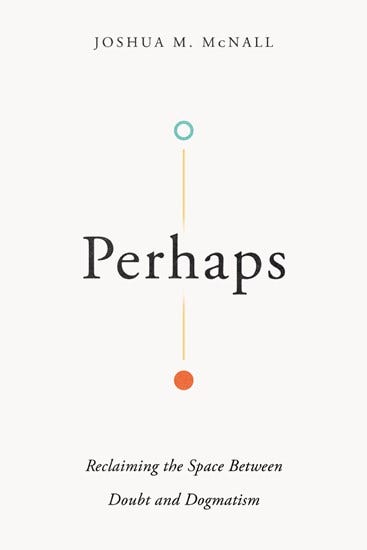If you find our weekly free articles helpful, we encourage you to become a subscriber to our monthly newsletter. The support of our subscribers and patrons make The Worldview Bulletin possible. If you’d like to grow in your ability to articulate and defend the Christian worldview, and support our work defending Christianity at the highest levels, we invite you to become a subscriber.
This title is somewhat misleading. The reference here is to “Turtles all the way down.” The sentence about turtles is from an apocryphal story about why the earth is how it is. Supposedly, conventional astronomy was denied, and the explanation which was to take its place was that the earth rested on the back of a turtle, which was on the back of another turtle, which was on the back of another turtle, all the way to infinity.
I am not here claiming that there is an infinite regress of brute facts. What I am claiming is that for philosophical naturalists, everything concrete ends up in some form of brute fact. However, it also seems to be common to affirm the existence of Brute Facts that are necessarily true, which is not brute at all, by definition. I will try to explain the concepts.
The concept of a brute fact is one for which there is no explanation. In other word, it exists by chance, and only by chance. There are thought to be two kinds of brute facts: epistemic and ontological. Epistemic ones have no explanation of which we are aware, though there might be an explanation. In my view, epistemic brute facts should not be called that. For, if they have an explanation, they are not really “brute.” There may be facts that are forever beyond our finite ability to discover the reason for their existence. But God knows. Ontological brute facts are ones for which there are no reasons or explanations as to why they exist or exist in the manner in which they do. They just are.
In many, if not most, naturalist ontologies, brute facts are abundant. Why does the universe exist and remain in existence? It just does. Why is the universe orderly in the sense that there are consistent laws and constants throughout the cosmos? After all, the laws of nature seem to be contingent[1] in that one can deny them without contradiction. Why do these laws and constants remain orderly and consistent over time? They just do. Why are the laws of the universe such that life can exist in it? They just are. Why are the laws consistent throughout space? They just are. And so on.
I covered this point in an earlier article in The Worldview Bulletin. However, I want to expand on it here. If brute facts are facts for which there is no reason, which just are, then atheist naturalist ontologies are full of brute facts. Why does consciousness emerge from the brain? There is nothing about a three-pound organ of fat with a vast number of neurons in it that entails that I have the phenomenal thoughts that I do, or have any conscious thoughts at all. It may be responded that there is some sort of law that entails that when a brain exists in a certain state, then a certain thought will also exist. But were there to be such a law, then its existence is brute. Further, why is there reason, and why are we creatures who can reason? Again, according to these atheist naturalists, it just arises as a brute fact from the blob of the brain.
Why can the conscious mind, which in atheism somehow “happens” to arise as a brute fact from the brain, be capable of understanding the physical universe? It just is. Why is consciousness (which arises for no ultimate reason from the brain) capable of understanding advanced math, writing poetry and fiction, and able to be full of feeling and emotion, and see 10 million different shades of color? It just does. How can there be a Brute Fact connection between a brain state and the thought that it is supposed to have in that brain state. There just is. Why is there free will of some sort, seeing that with any physicalist view of the brain, consciousness itself is very difficult to understand (physical entities obey the laws of physics, which do not include free will)? There just is. (It should be noted that not all naturalists affirm the existence of free will.) Further, if the brain and all of its properties are just brute facts, what justification do we have for thinking that our thought is reliable?
What about morality? Given that there really are robust moral laws existing as abstract objects, why are they attuned to the life of human beings? After all, given that propositions exist among the Platonic horde, there are not only propositions that state, “It is wrong to torture anything for fun,” but also ones that state, “It is not wrong to torture anything for fun.” Why, with no God to choose one, is one statement true and the other false? They just are. If this is not an infinite regress of brute facts, it is a whole universe full of them. Save for the basic laws of logic and what follows from them, with naturalism, everything is a brute fact.
Given the absurdity of a universe built entirely upon Brute Facts, there has arisen the concept of “Brute Necessity.” This concept of brute necessity is that there are things whose existence is brute, but are also necessary. This is a strange notion, but one that has been appealed to in several different contexts. Eric Wielenberg appeals to brute necessity to explain his version of robust realism.[2] Brian Ribeiro uses brute necessity to explain the existence of beauty.[3] Joseph C. Schmid argues that existential inertia is explained by brute necessity.[4]
Recently, Graham Oppy has appealed to the notion of brute necessity without specifically naming it. He wrote, “(1) [A]ll worlds share an initial causal history with the actual world and diverge from it only as a result of the outplaying of objective chance; (2) all worlds share the same causal laws.”[5] Here Oppy seemingly rejects the notion that this world exists of necessity, as is shown by his mention of other worlds, and of objective chance. Yet at the same time, he thinks that the natural, causal laws of nature are necessary, in that all worlds share them. By necessary, I mean what is absolutely necessary, or as it is sometimes called, broadly logically, metaphysically necessary. This has some strange results. For example, the strength of gravity cannot be other than it is, yet the strength that it has does not seem at all to be reducible to the laws of logic. That its strength is what it is, must be brute. The other laws of nature are in the same boat. Thus, what Oppy seemingly is appealing to are brute necessities.
Yet the whole notion of ontological brute necessities seems contradictory. For to be brute is to be without a reason, or, for no reason at all, just by sheer chance. To be necessary is to be such that it is impossible to be otherwise. How can something be both? I do not see how. Why then is this oxymoronic concept appealed to? I think that it is because naturalist atheism needs both bruteness to account for contingency, and necessity to explain the existence of the universe as it is. But they cannot have both, as least not in the form of brute necessities.
Atheists sometimes have responded to this by arguing that theists are in the same boat, that in theism God’s existence is a brute necessity. This however, I deny. Though I cannot argue it here, I have argued that God’s necessity is analytically contained in his nature[6], and is not brute. God’s existence is necessary, while the existence of the universe is contingent. As is usually the case, theism can explain things, while naturalism cannot.
Notes
[1] By contingent, what is meant is something that did not have to exist in the manner it does, or exist at all. I realize that there are philosophers who defend the necessity of the laws of nature. For an interesting discussion see Tugby, “Platonic Dispositionalism.” All the attempts I have seen which try to make the laws of nature metaphysically as well as nomologically necessary, reduce to a brute fact. See Parrish, God and Necessity, 2001, 217–50.
[2] Wielenberg, Robust Ethics, 37.
[3] Ribeiro, “The Argument from Beauty,” 172.
[4] Schmid, “Existential Inertia and the Aristotelian Proof,” 10.
[5] Oppy, “Naturalistic Axiology,” 137.
[6] Parrish, God and Necessity, 2001.
Bibliography
Oppy, Graham. “Naturalistic Axiology.” In Four Views on the Axiology of Theism: What Difference Does God Make?, Paperback., 137–56. London: Bloomsbury Academic, 2022.
Parrish, Stephen E. God and Necessity: A Defense of Classical Theism. Lanham, MD: University Press Of America, 1997.
———. God and Necessity: A Defense of Classical Theism. University Press Of America, 2001.
Ribeiro, Brian. “The Argument from Beauty.” In Contemporary Arguments in Natural Theology: God and Rational Belief, 167–78. London, UK: Bloomsbury Academic, 2021.
Schmid, Joseph C. “Existential Inertia and the Aristotelian Proof.” International Journal for Philosophy of Religion, September 3, 2020. https://doi.org/10.1007/s11153-020-09773-9.
Tugby, Matthew. “Platonic Dispositionalism.” Mind 122, no. 486 (April 2013): 451–80.
Wielenberg, Erik J. Robust Ethics: The Metaphysics and Epistemology of Godless Normative Realism. 1st edition. Oxford, United Kingdom: Oxford University Press, 2014.
— Dr. Stephen E. Parrish is Professor of Philosophy at Concordia University in Ann Arbor Michigan, where he has taught for 22 years. He received his Ph.D. from Wayne State University in Detroit. He is author of God and Necessity, The Knower and the Known, and most recently, Atheism? A Critical Analysis. At present he is working on a book on metaethics. He has three grown daughters, and lives with his wife and cat.
Image by Arek Socha from Pixabay
Perhaps
Reclaiming the Space Between Doubt and Dogmatism
The Christian life requires faith. That means that believers are sometimes faced with uncertainty. But is all uncertainty bad?
Theologian Joshua McNall encourages readers to reclaim the little word “perhaps” as a sacred space between the warring extremes of unchecked doubt and zealous dogmatism. To say “perhaps” on certain contested topics means exercising a hopeful imagination, asking hard questions, returning once again to Scripture, and reclaiming the place of holy speculation as we cling to a faith that stands distinct from both pervasive skepticism and abrasive certainty.
“In a polarized world with the rigidity of fundamentalisms on the one hand and the nihilism of skepticisms on the other, McNall enters to sketch a way forward for the holiness of intellectual humility. This is a creative book that not only argues winsomely from Scripture, theology, and literature, but also invites the reader into a narrative that portrays how the weight of its claims press on everyday life. Perhaps will be especially helpful for the student wrestling with the challenges of Christian orthodoxy, and all looking for breathing room to wonder, hope, and ultimately, trust.”
— James M. Arcadi, associate professor of biblical and systematic theology at Trinity Evangelical Divinity School
Find Perhaps at Amazon, InterVarsity Press, and other major booksellers.
*Sponsored post
Advertise in The Worldview Bulletin
Advertising in The Worldview Bulletin is an effective way to promote your product or service to thousands of readers who share your commitment to the Christian worldview. Visit here to learn more.



Are we going to get a Tony vs Bart part 3?